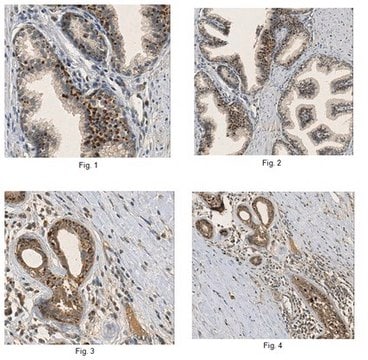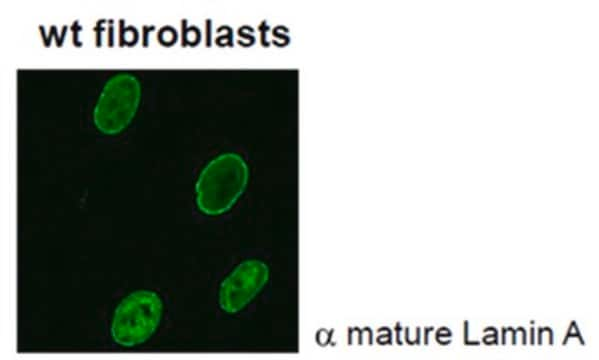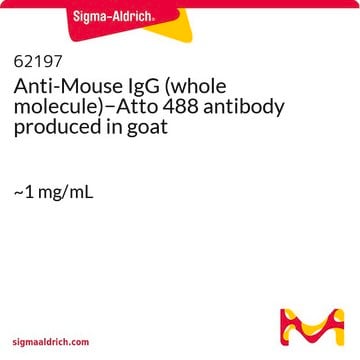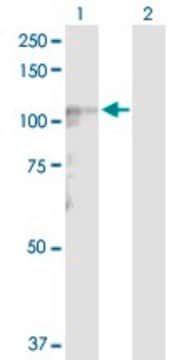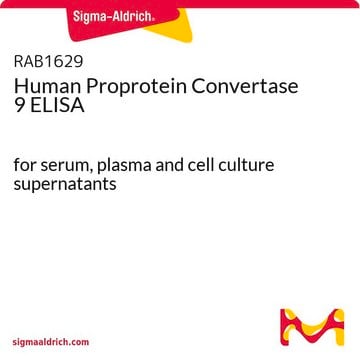MABS330
Anti-SFRP2 Antibody, clone 8H1
clone 8H1, from rat
Sinónimos:
Secreted frizzled-related protein 2, FRP-2, sFRP-2, Secreted apoptosis-related protein 1, SARP-1
About This Item
Productos recomendados
origen biológico
rat
forma del anticuerpo
purified immunoglobulin
tipo de anticuerpo
primary antibodies
clon
8H1, monoclonal
reactividad de especies
mouse, horse
reactividad de especies (predicha por homología)
equine (based on 100% sequence homology), human (immunogen homology)
técnicas
immunohistochemistry: suitable
western blot: suitable
isotipo
IgG2aκ
Nº de acceso NCBI
Nº de acceso UniProt
Condiciones de envío
wet ice
modificación del objetivo postraduccional
unmodified
Información sobre el gen
human ... SFRP2(6423)
Descripción general
Inmunógeno
Aplicación
Signaling
Developmental Signaling
Immunohistochemistry Analysis: A representative lot from an independent laboratory detected SFRP2 in equine retinal tissue (Hauck, S. M., et al. (2012). Journal of Proteomics. 75:4545-4554).
Calidad
Western Blotting Analysis: 2.0 µg/mL of this antibody detected SFRP2 in 10 µg of mouse eye tissue lysate.
Descripción de destino
Forma física
Almacenamiento y estabilidad
Nota de análisis
Mouse eye tissue lysate
Otras notas
Cláusula de descargo de responsabilidad
¿No encuentra el producto adecuado?
Pruebe nuestro Herramienta de selección de productos.
Código de clase de almacenamiento
12 - Non Combustible Liquids
Clase de riesgo para el agua (WGK)
WGK 1
Punto de inflamabilidad (°F)
Not applicable
Punto de inflamabilidad (°C)
Not applicable
Certificados de análisis (COA)
Busque Certificados de análisis (COA) introduciendo el número de lote del producto. Los números de lote se encuentran en la etiqueta del producto después de las palabras «Lot» o «Batch»
¿Ya tiene este producto?
Encuentre la documentación para los productos que ha comprado recientemente en la Biblioteca de documentos.
Filtros activos
Nuestro equipo de científicos tiene experiencia en todas las áreas de investigación: Ciencias de la vida, Ciencia de los materiales, Síntesis química, Cromatografía, Analítica y muchas otras.
Póngase en contacto con el Servicio técnico